Last updated on July 31st, 2023
This is a section from Chapter 15 of 'Anorexia and other eating disorders – how to help your child eat well and be well'
You can also hear many of the main tools in my Bitesize audio collection. Here's one and a half minutes from my Bitesize audio collection, on 'The best psychological tools for these extraordinary times':
This chapter is all about your wellbeing, your resilience, your strengths, so that you can cope right now and even flourish in the longer term. Whether you’re getting ready to serve a meal or trying to cope with emotional exhaustion, you will find resources here, and nourishment for your soul.
This is the chapter that too many parents skip. Our wellbeing seems like a ridiculous luxury when our children are suffering! We bristle when people tell us to take care of ourself. ‘A manicure?!’ we fume, ‘what the #$%# would I do with a #$%#-ing manicure! It’s a #$%#-ing break I need!’ We feel alone and misunderstood. Outsiders don’t appreciate that our situation is too serious to be solved with a bubble bath, and that in any case, we don’t have a minute to ourselves.
And at the same time, we often feel at the very edge of what we can bear. Coping tools that used to serve us well are not up to the job any more. We say, ‘I don’t know how much more I can take.’ Our heads are barely above water, we want everything to get back to normal now, yet we’ve learned that caring for our child is a marathon, not a sprint. Besides, life doesn’t stop just because our child is ill. The boiler stops working. An aged parent breaks a hip. A pandemic happens.
What we need is stamina and endurance in order to keep going, and resilience so we can recover from knocks and move onwards and upwards with confidence. Besides, we are role models for our children: it’s useful to show them how we manage emotions and how life can be good. It’s what we want for them, isn’t it, to live life to the full? It must be a relief for them to see they have not destroyed us and that we continue to provide the wisdom and stability they need.
In this chapter I will share the psychological tools I found most wonderful. Many take neither time nor money. And although what follows is self-help, please appreciate that humans need others, and this is very much a time to reach out to kind friends or professionals. As suffering is really not much fun, I hope that what follows will speed up your emotional journey.
[Jumping to another section of the chapter…]
Distraction
Tool number two is distraction. Sometimes we are too distraught to self-connect, to go inwards. It can feel risky to be with our emotions, because we’re alone and could get overwhelmed, or because we might cry at a most inconvenient time. Maybe we’ve tried some introspection or mindfulness and it’s only making our ruminating worse. This is where distraction is precious. It interrupts the flow of catastrophising or critical thoughts. Our nervous system stops perceiving threats and allows our state to move away from fight, flight or freeze. A few minutes of distraction and the world can feel like a better place.
Soak in the good
The next tool in my ‘favourites’ list is appreciating good things, big or small. This tip is especially useful when you have no time (or money) for what used to give you a boost. As you go about your demanding day, look for things that will delight your senses, that will feed your soul. Notice the beauty of a flower, the smell of fresh coffee, the warmth of the water as you wash your hands, the fluffiness of your slippers. Appreciate the smoothness of your cat. Laugh out loud at your dog’s antics. Pause at the window as you notice a sunset. Breathe in the wonder. If for a moment, you feel at one with the world, stretch out the moment. If a sense of gratitude or joy bubbles up, magnify it. Play music that energises rather than depresses. Listen to podcasts of inspiring people. On the internet, steer away from negativity, and instead seek out images and stories that make you feel good. There’s a picture of Snoopy hugging his little bird friend, Woodstock, that thrills me every time I see it.
Perhaps this morning your child gave you a rare smile, and suddenly you had hope that your kid was back. Let your heart soar. Do you tend to minimise these joys? (‘Mustn’t get my hopes up! Mustn’t tempt fate! It will all be a big disappointment!’) Actually, anticipatory grief doesn’t offer any protection. If your hopes are dashed, you will suffer… and you will be more ready to bounce back if in the meantime, you have nourished yourself. Athletes build up their bodies. Parents build up their wellbeing.
Every time you notice something good, pause for a second and amplify the feeling in your body. Our brains evolved with a negativity bias to ensure our survival, not our happiness. We naturally dwell on what has or could go wrong. The stress of it keeps us awash with some very tiring chemicals like adrenaline and cortisol. As you allow yourself to enjoy positives, your body switches over to the production of feel-good hormones. Notice the feeling and amplify it.
I used to feel like nothing short of a ten-year holiday on a tropical island could possibly fill up my tank. It was humbling to find that one hour of companionship, one minute of laughter, one kind gesture from a loving person, could top up my wellbeing. My external circumstances were just as hard, but the shot of feel-good chemicals had moved me to a better state, making me more resilient.
[Jumping to another section of the chapter…]
Coping moment by moment
Feelings are in-the-moment things. In Chapter 13 I described them as waves that rise and subside. They pass. They transform into something else. Your emotions may be at rock bottom now but there is no way of predicting how they will be in ten minutes or in ten days. These days, the only certainty I have about my emotions is that they come and go, and the less I get them tangled up with my thoughts, the more likely they are to move on.
When I realised that I was stressing out about the next year, the next week, or even the next hour, I decided to notice how, moment by moment, I was coping. The moment might need to be subdivided into units of milliseconds, so that I could tell myself, ‘Right now, this instant, I’m actually fine.’
You could notice that the only reality is the present moment. This instant. This instant in which you are living and breathing and in which the ground is under your feet. The past is gone; the future doesn’t yet exist.
I decided that if I could be fine in the present, even when things were horribly tough, I could trust I would most likely also be fine in future, present moments.

I wonder if you’ve ever done this with physical pain. You’ve bitten through a chunk of your tongue and it’s hurting like hell, but just now, this second, it’s bearable. And this next second is OK too. And so on. You might even start noticing that the pain subsides because it’s not aggravated by catastrophic thoughts.
Noticing that we are coping in the moment allows us to deal with our fears one step at a time. I love this sentence from the excellent book Parenting Your Anxious Child with Mindfulness and Acceptance by Christopher McCurry:
“Sometimes all we need is just a glimpse of where to go and what to do, and we can take the next step – and then the next and then the next.”
[End of extracts from the chapter]
In this chapter:
- My search for new ways to deal with adversity
- Get to know what sustains you
- Self-compassion
- Distraction
- Soak in the good
- Use your body to trick your mind
- Good-enough Zen, or five percent better
- Coping moment by moment
- Being in the moment
- Choose where you put your attention
- Deep questions
- Imagery to help you get grounded and peaceful
- Mindfulness
- Acceptance: work with reality, not against it
- Trust that you have resources
- What to do with fear
- After the illness: will you be well?
- Mistakes, blame and self-acceptance
- Sadness, grief and … joy
- Writing a diary: self-help or rumination?
- Helper's high
- An attitude of gratitude
- Joy
That's the end of the book. Sign up to my mailing list to stay in touch!
Where to now?
* Three routes out of post-traumatic stress disorder (PTSD) *
* Psychotherapy approaches: which might help? *
* My guide to self-compassion on 'Self-compassion: how to recover your inner strength' *
- And a very simple version of self-compassion: ‘OK’: two letters for two steps to mindfulness and compassion *
* Internal conflict: self-compassion and how to mediate arguments in your brain *
* My YouTube: ‘The hero’s journey: resilience and wellbeing for parents’ *
* I sometimes run a workshop on this topic *
-

Essentials: how to succeed with meals and other priorities
$116.99 Book Now! -

Extinguish fears: how to bring back flexibility
$57.99 Book Now! -

Freedom: how to bring back independence
$57.99 Book Now! -

Communication skills to support your child and be more effective
$57.99 Book Now! -

Grow stronger – Tools for your own wellbeing
$57.99 Book Now!

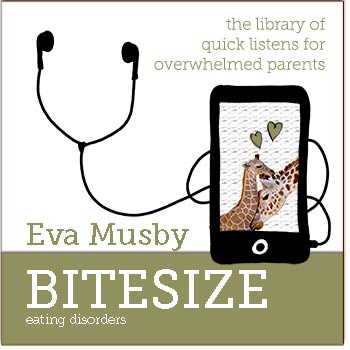
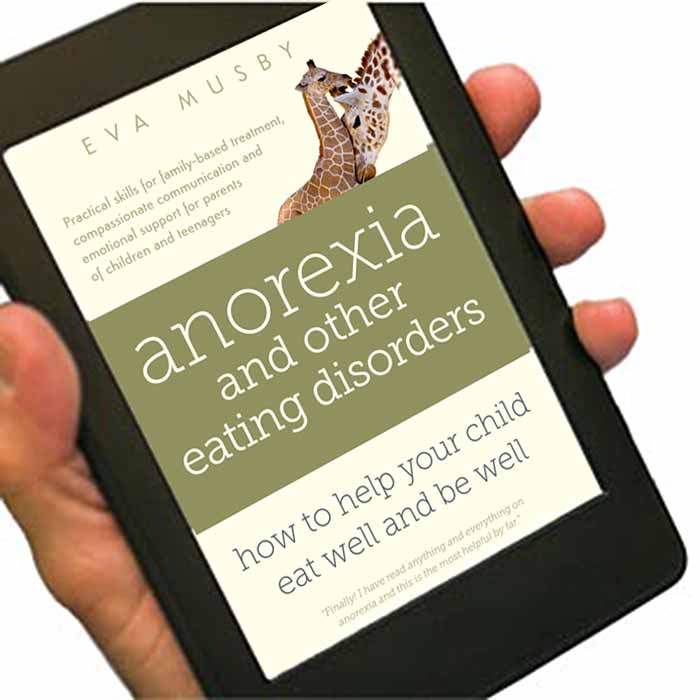
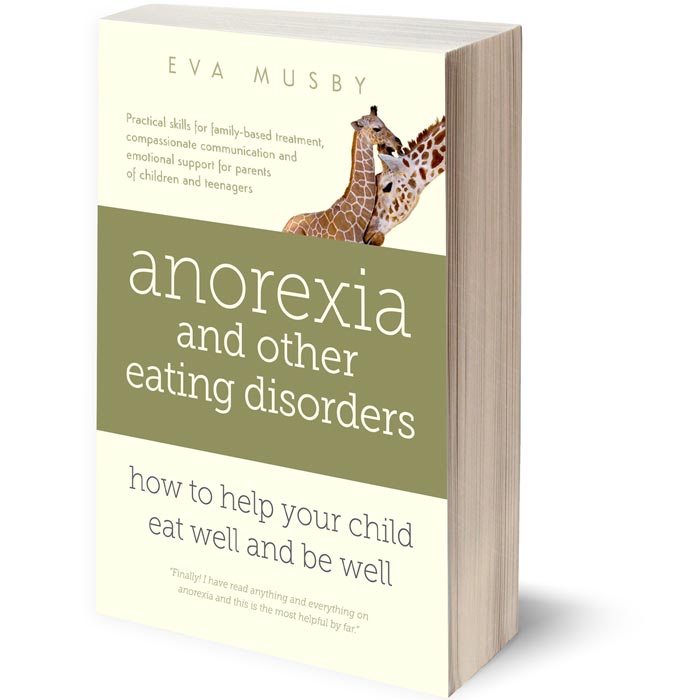
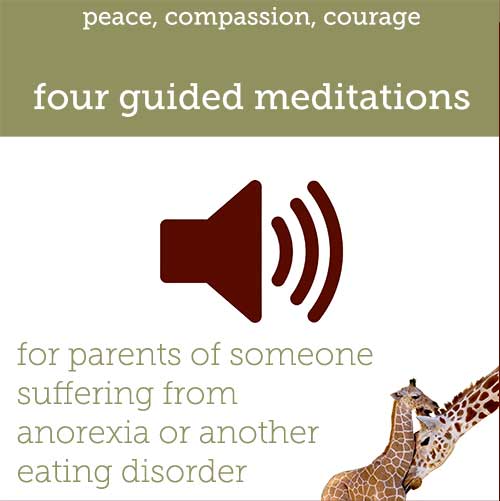




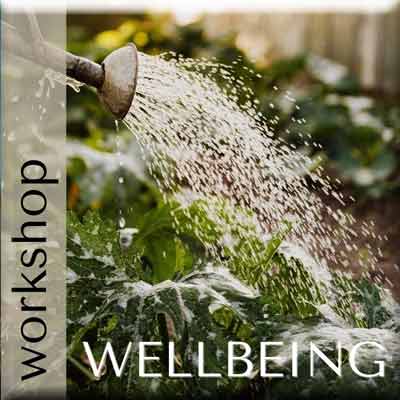
Thank you. Good to know the cover and title work for you. I'm so very pleased that you found something to give you peace and courage for the next day. Thank you so much for letting me know. Wishing you lots more of that.
Eva
Having a glum day & just popped by. Read the section on joy and am now going to sleep peacefully ready to start again tmrw. ps Love the cover & title.
I have read this section and reflected on it in discussion with my counsellor. It has truly helped me to consider why I have become overtly emotional with every anorexic outburst. The fears you have discussed are precisely those that fuel my responses and considering this and consciously making a decision to contain these thoughts and remain in the moment have enabled me to not only regain control over my own despair but to feel that I CAN and Will make a positive difference to what is happening in the here and now.
Thank you for letting me know how this chapter is supporting you. It's so much what I've been hoping for. And I'm so glad you have a counsellor by your side.
It sounds like you're able to acknowledge big fears and at the same time accessing vast reserves of power through being in the present moment. I'm thinking of you, and of all those in a similar position, with much kindness and admiration.
Thank you for your clear and insightful writing. I came across your draft whilst in the middle of an emotional meltdown, both mine and my daughter's. With your advice, I turned the situation round. Deep breath and hand on heart. I am new to this but learning very fast or trying to. In my case, every mistake is a treasure has saved me from sinking into depths of despair.
It's so good of you to let me know. This is so much what I'm hoping for with this book, and it fills my heart to imagine you having turned your situation round and for your despair to be lifted. I'm also sending you warm wishes for your progress to continue and for your resources to keep strengthening.
Love
Eva
PS. If you have advice on bits to cut or bits that are missing, I'm always open to hearing it. I'm terribly conscious that readers need answers fast.
Thank you, that's so helpful. I'm going to blend those two suggestions of yours into my draft, if that's OK with you. I'm sure they'll help others.
If you get round to reading the next section, I'll be curious for your feedback: it's the one I'm the most uncertain about at the moment.
I hope your list will soon be one of those things you look at in awe, prompting you to reflect on the endurance and courage you and your family found in extreme times.
Eva
Hi Eva
I'm finding all this so helpful. Some is new, but a lot is so similar to my journey as a parent, i definitely think you're on the right track.
One of the things in my tool kit which helped was recognizing that if I lost it with anger, tears, harsh ( sometimes horrible) words, it was done, I couldn't change what had happened, but I could model correcting it. So it wasn't the mistake which mattered, it was what I did with it afterwards. This helped me soothe myself.
One practical thing which really works for me; I have written myself a list of principles / rules to read when I am in the quagmire. They are things like; good enough is ok stop trying to be the best mum in the world ( I wonder where my D's perfectionist traits come from…..) . So I wrote them when I was calm, and I read them when I am not. They help ground me, and they remind me why we're doing things in a certain way. The list gets amended with time, with some items no longer relevant & new ones added.